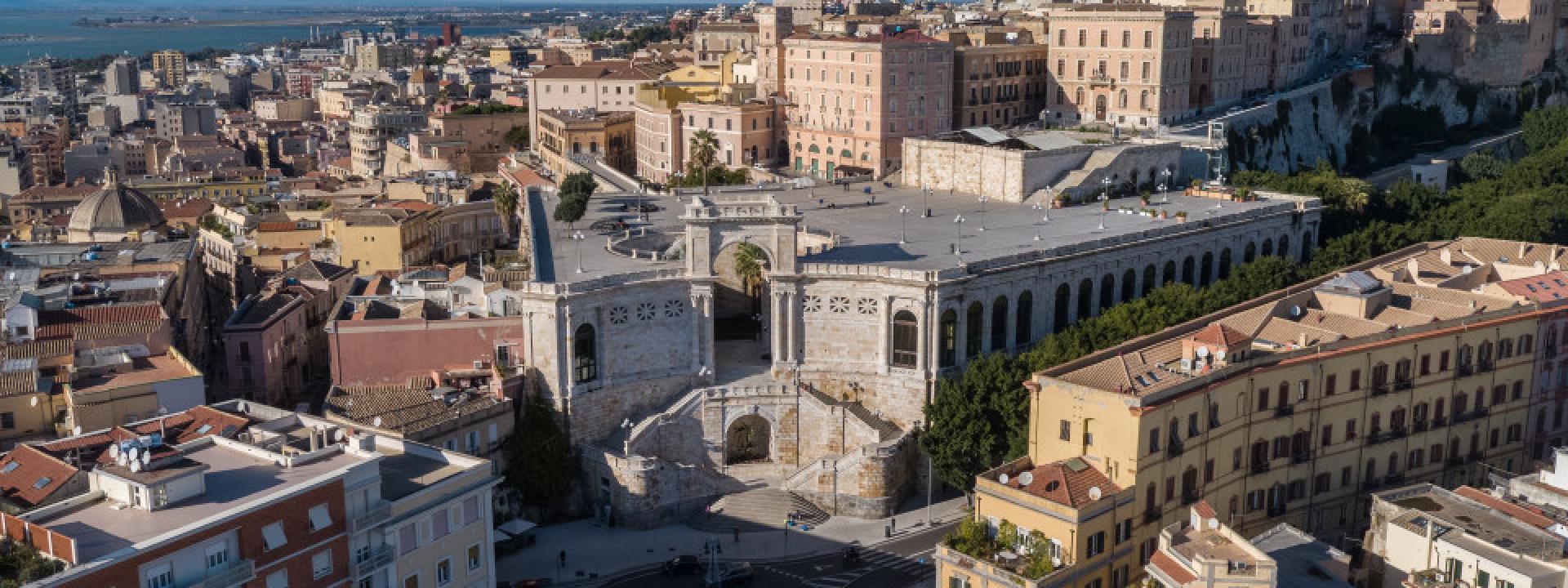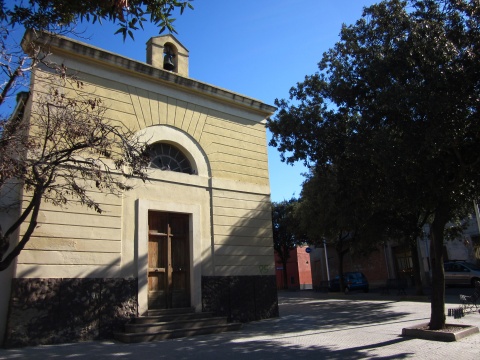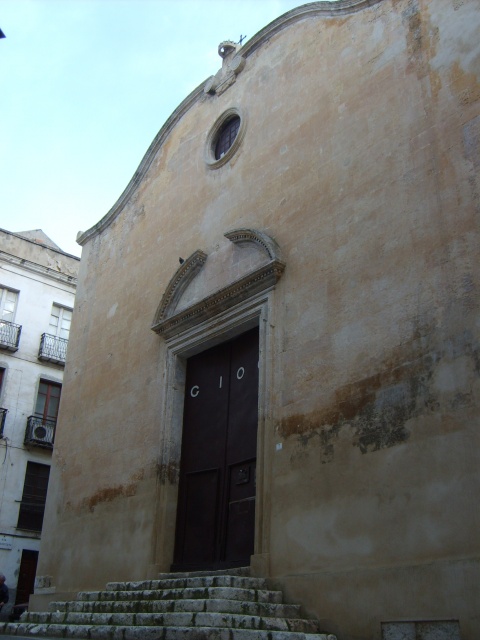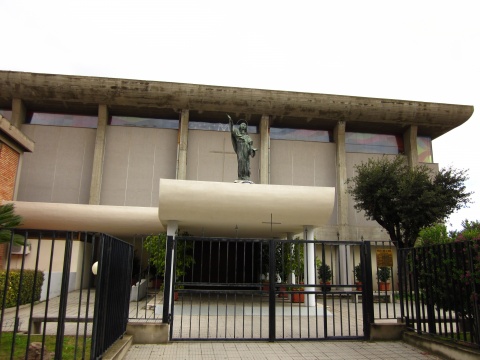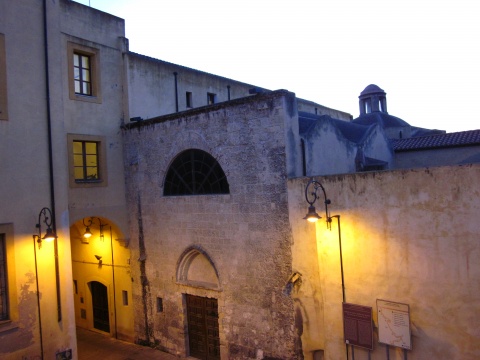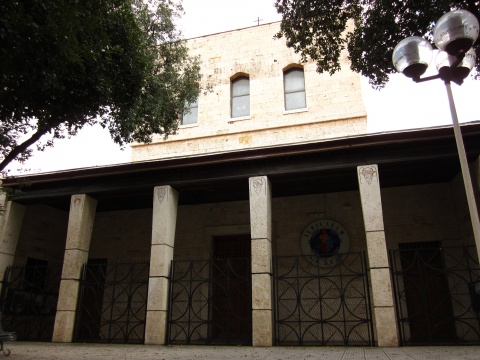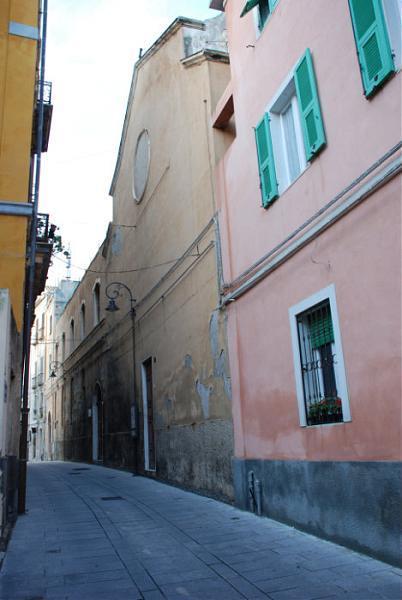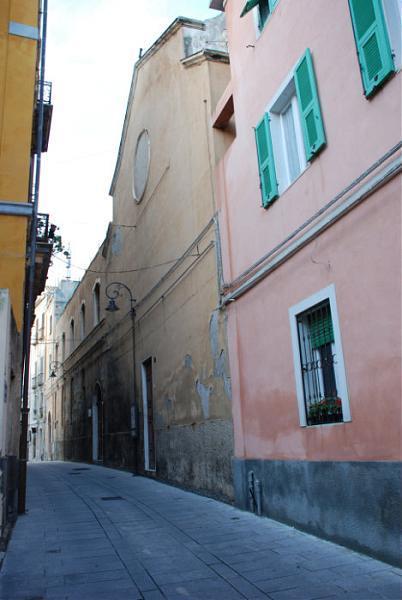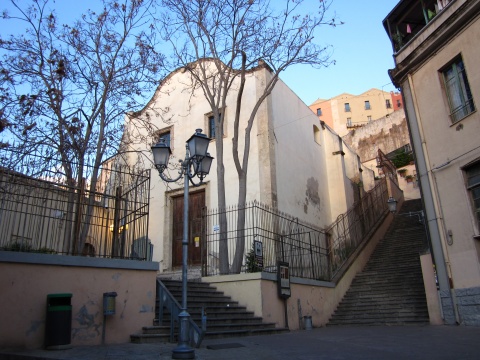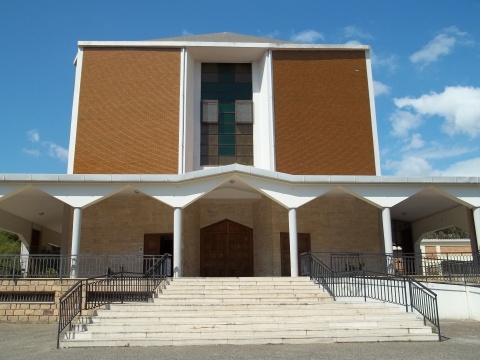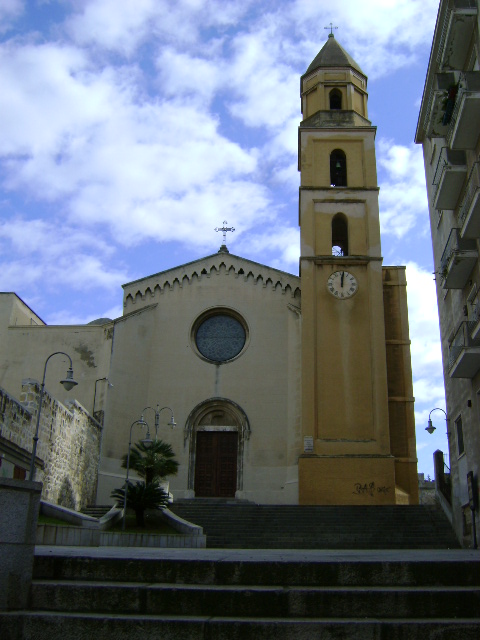Church of Saint Rosalia
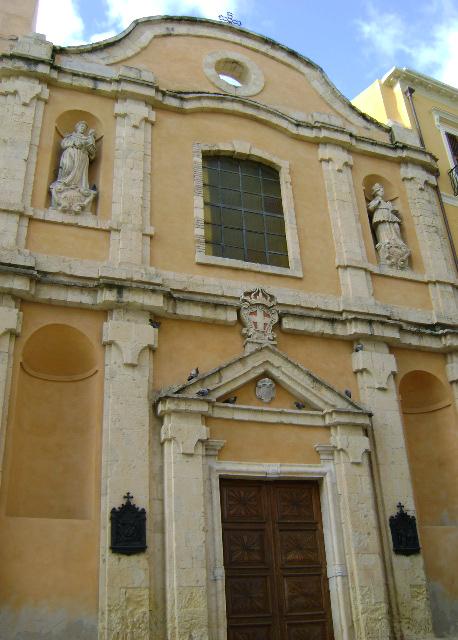
The church was built in the fifteenth century as a small oratory, due to a vow made in Santa Rosalia by the city authorities on the occasion of the recurring plagues. Located in the upper part of the Marina district, near Piazza Costituzione, it has a facade inspired by the lines of the Piedmontese baroque with frames, gables and pilasters arranged on two orders. Elegant niches in the upper part of the facade host the statues of the Franciscan saints Bonaventura and Antonio da Padova. The interior of the church has a single barrel vaulted nave, an octagonal dome on the presbytery and four chapels on each side. In the second chapel on the right from the entrance, the relics of San Salvatore da Horta from 1844 to 1931 have been preserved, then placed in the main altar, renovated for the occasion by the sculptor Andrea Usai. For this reason the church is also known with the name of San Salvatore, one of the most dear saints and venerated by the Sardinians.
Chiesa di Santa Rosalia
Chiesa di Santa Rosalia
Via Torino
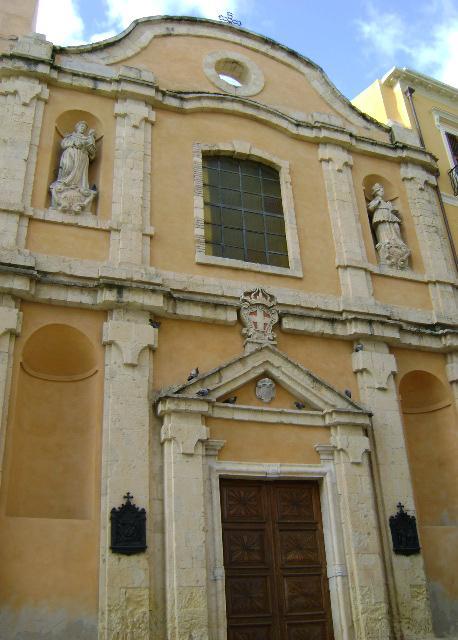
Add new review
Your review will be visible after approval by the editors
To post a review you must be an authenticated user.
Log in with Social Login
